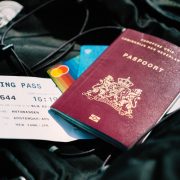FAQ: 2022 NHS Pay Bands For Nurses
Over the last few days, many have taken to Google to enquire about the National Health Services’ pay band. Most are enquiring about Band 5 and we have taken the time to answer some questions about the NHS’ pay band in 2022.
What Is The Average Wage For A UK Nurse In 2022? According to the 2018 Royal College of Nursing’s calculations, the average NHS nurse’s weekly salary is £642, and annually, £33,384, however, there are other factors that were not taken into consideration with the Royal College of Nursing that might affect the average salaries published, though presumed accurate, the figure might not be as affirmative in 2022 as it was in 2018.
How Do NHS Pay Bands Work? The UK Government uses a Job Evaluation Scheme called the Agenda For Change System. The system is the one that allocates posts to set pay bands. The system among other things is used to provide better links between pay and career progression using the Knowledge and Skills Framework (KSF)
What Is The NHS Pay Band for 2022 – There 9 Salary Bands for Nurses in the NHS, ranging from band one to band 9 as outlined on the table below
| Band | Years Of Expereience | Salary In Pounds |
|---|---|---|
| 1 | 0 to 1+ | £18,546 |
| 2 | 0 to 2 | £18,546 |
| 2 to 6+ | £19,918 | |
| 3 | 0 to 2 | £20,330 |
| 2 to 6+ | £21,777 | |
| 4 | 0 to 3 | £22,549 |
| 3 to 6+ | £24,882 | |
| 5 | 0 to 2 | £25,655 |
| 2 to 4 | £27,780 | |
| 4 to 7+ | £31,534 | |
| 6 | 0 to 2 | £32,306 |
| 2 to 5 | £34,172 | |
| 5 to 8+ | £39,027 | |
| 7 | 0 to 2 | £40,057 |
| 2 to 5 | £42,121 | |
| 5 to 8+ | £45,839 | |
| 8a | 0 to 5 | £47,126 |
| 5+ | £53,219 | |
| 8b | 0 to 5 | £54,764 |
| 5+ | £63,862 | |
| 8c | 0 to 5 | £65,664 |
| 5+ | £75,874 | |
| 8d | 0 to 5 | £78,192 |
| 5+ | £90,387 | |
| 9 | 0 to 5 | £93,735 |
| 5+ | £108,075 |
Do Private Sector Nurses Earn More Than Public Sector (NHS) Nurses In The UK? The NHS has a structured pay system depending on the bands that were listed in the table above. However in the private sector, there are various factors, for example, someone can negotiate their salary in the private sector while in the NHS it is not common. That then affects salaries earned in both sectors, therefore, the simple answer is, there are some NHS nurses who earn more than private-sector nurses while there are some nurses in the private sector who earn more than NHS nurses.
If I Am A Qualified Nurse Coming From Another Country To Work In The UK, Which Band Will I Start At? Band 5
How Long Will It Take Me To Get To The Next Band? So The NHS KSF system will scale a nurse’s performance and award points for each band. There are different points for each band, and annual appraisals are then used to determine the points to be given to each nurse. Normally nurses move one point each year.
If you are wondering how you can move to the UK from other countries to work for the NHS, check out our blogs on how you can commence the process.






